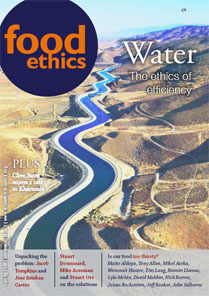See Introduction/aim of research for the background to this work.
Due to there being fairly extensive information about agriculture’s impact on the environment and my focus on some of the less investigated areas, this section only briefly outlines some of the major environmental impacts.
According to research carried out by FAO (2006), around 70% of the total agricultural land area is used in the raising of livestock. That area accounts for about 30% of the total ice-free land surface. However, much of this land is marginal and is used for grazing and would not be productive for other types of agriculture. Raising of livestock utilises about a third of the total arable land supply for growing of feed-crops. Given these figures, it is clear that continued expansion of the industry presents a challenge in terms of environmental and food supply security as either more land needs to be used or more crops needs to go towards animal feed. Intensive livestock production is still mostly the preserve of the more economically advanced countries and the livestock feed is also mainly produced in OECD countries. Current levels of livestock production let alone expansion look unsustainable due to their dependence on large energy inputs, heavy impact on the environment and dwindling global water security.
Filed under: Agriculture, Environment, Food | Tagged: diet, Food, food security, Meat, pollution, Sustainability, Water security | Leave a comment »











